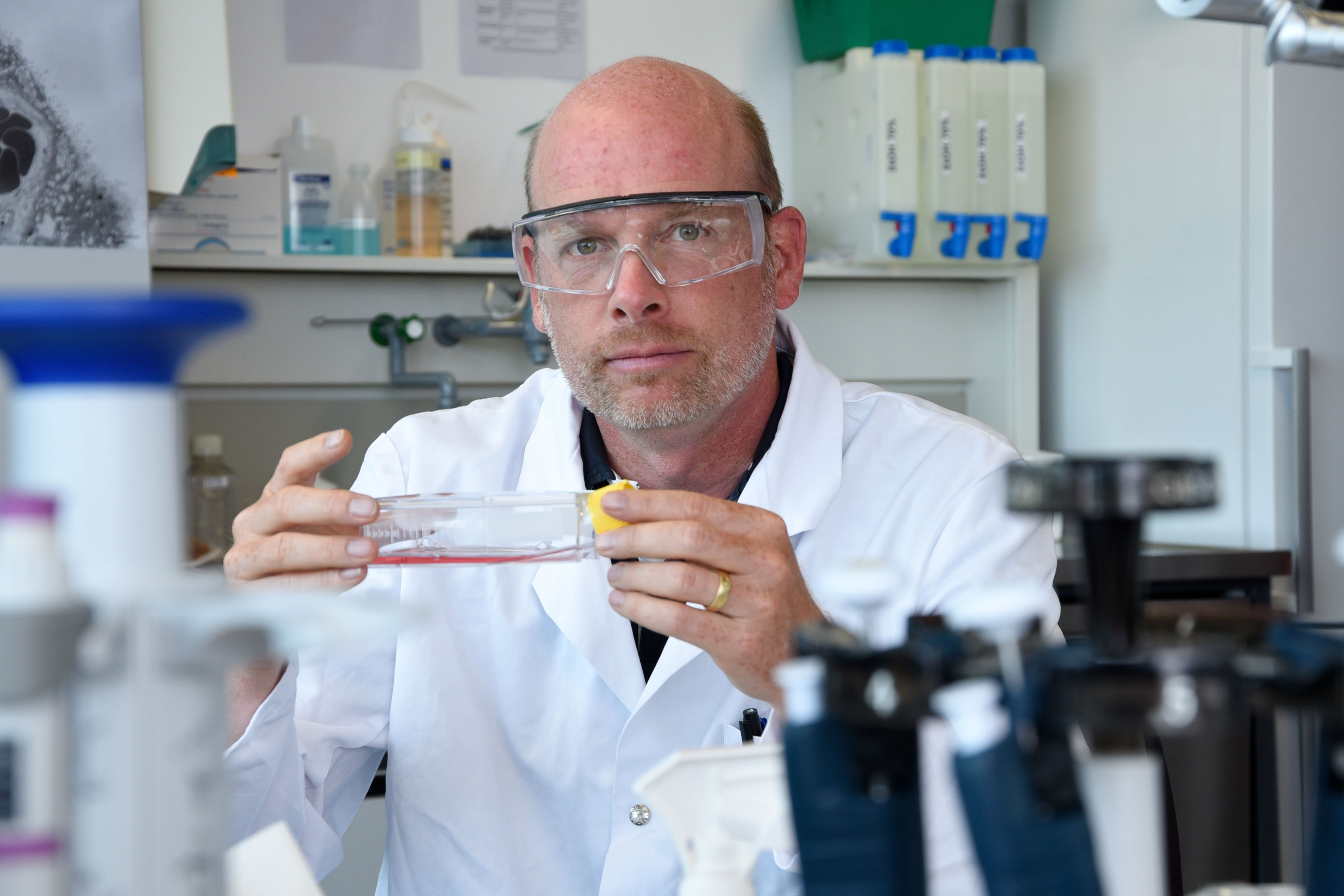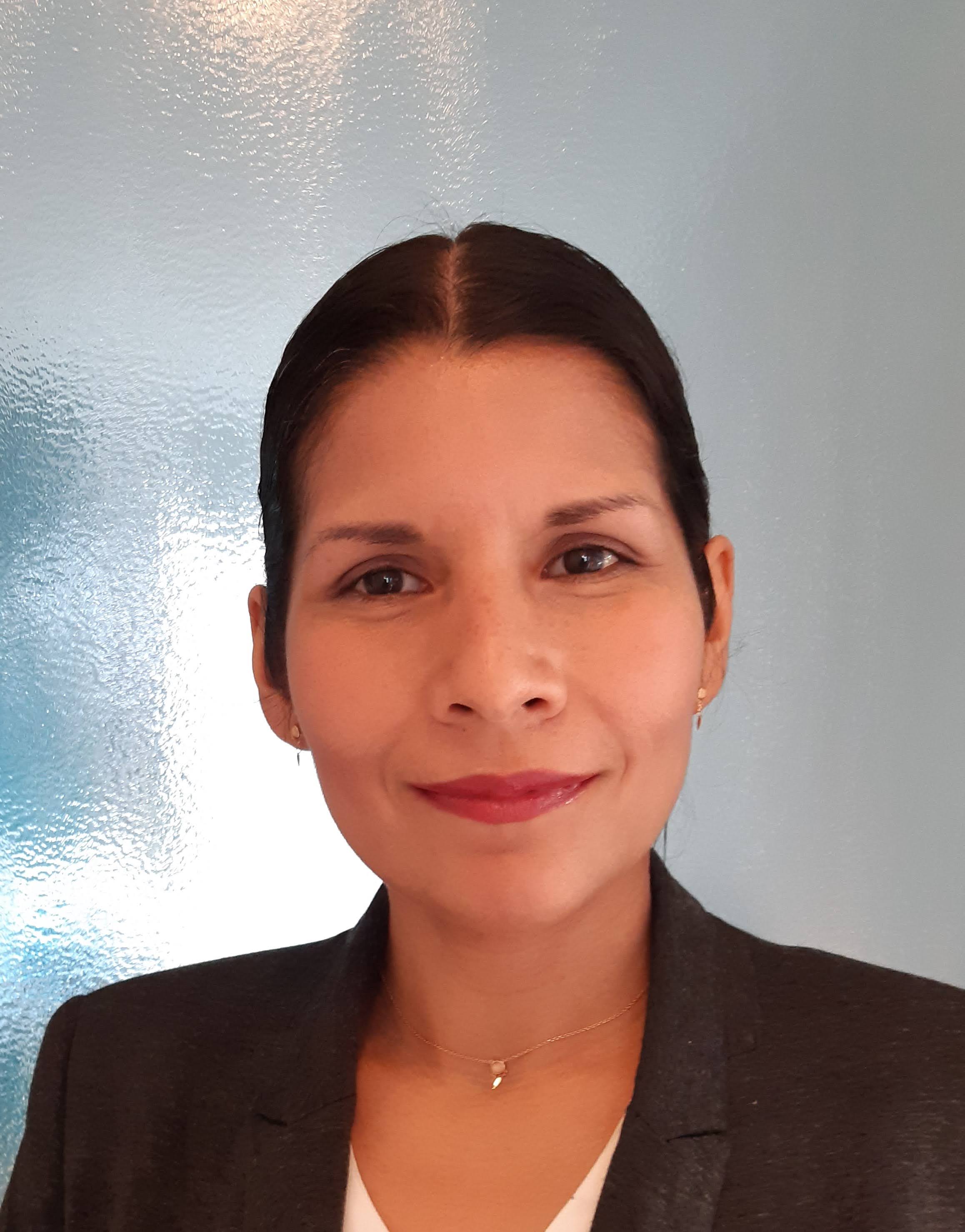Forschung mit Wirkung
Anwendungsnahe, interdisziplinäre und gesellschaftlich relevante Forschung. An der Empa in St.Gallen forscht ein inernationales Team an Lösungen für reale Herausforderungen. Wir haben bei Peter Wick, Head of Laboratory, und Vanesa Ayala-Nunez, Scientist, nachgefragt.


Peter Wick, Head of Laboratory
Welche persönliche Motivation prägt Ihre Tätigkeit bei der Empa?
Die Freude an der Wissenschaft. Neues zu entdecken und das neu Erworbene zu nutzen, um gesellschaftliche Herausforderungen anzupacken. Die heutigen Herausforderungen vor allem in der Gesundheit sind komplex, vielschichtig und benötigen viele verschiedene Expertisen. Die Möglichkeiten, mit innovativen Materialien im Gesundheitsbereich neue Akzente zu setzten sind bei weitem noch nicht ausgeschöpft, es gibt noch viel zu entdecken.
Wie gestalten Sie die internationale Zusammenarbeit innerhalb Ihrer Projekte, und welche strategische Bedeutung messen Sie dieser für die Empa bei?
Die Empa hat in ihren Forschungsabteilungen rund 50% projektbezogene Mitarbeitende. D.h. wir rekrutieren spezifisch Talente, die mit ihrem Fachwissen und ihrer Persönlichkeit am besten zum jeweiligen Projekt und zum Team passen. Über die Jahre ist so in meinem Labor ein internationales und interdisziplinäres Team entstanden, dass ich nicht missen möchte.
Können Sie ein internationales Projekt oder eine Partnerschaft hervorheben, auf das Sie besonders stolz sind, und erläutern, warum dies für Sie von Bedeutung ist?
Wir durften 2023 nach 10-jähriger internationaler Zusammenarbeit das EU Flagship Projekt Graphene abschliessen, das mir über 1 Milliarde € von der EU finanziert wurde und über 150 Partnerinstitute umfasste. Über diese Zeit forschten wir gemeinsam an Graphen und Graphen-ähnlichen Materialien für neue Anwendungen in den verschiedensten Bereichen unseres Alltags, etwa für XYZ oder ABC. Dabei entstanden nicht nur exzellente langfristige Forschungskollaborationen sowie die nächste Generation an WissenschaftlerInnen, sondern auch Freundschaften in der ganzen Welt. Das Flaghsip war – und ist noch immer – Türöffner für zahlreiche Folgeprojekte.
Vanesa Ayala-Nunez, Scientist
What motivated you to work at Empa in St.Gallen?
I have been working at Empa in St. Gallen for the past four years. Before that, I lived and worked in the Netherlands, in France and in Germany. After this journey across Europe, I chose Empa because of the institute’s excellent reputation for high-quality, impactful research. At that time, I was particularly interested in developing new physiologically relevant in vitro models, a complex and technically demanding challenge. What drew me to Empa, however, was not only the scientific excellence but also the freedom to be intellectually curious. Here in St. Gallen, I found a truly multidisciplinary environment where collaboration happens naturally. Walking through the halls and labs, I interact with materials scientists, chemists, engineers, and biologists, all under one roof. This diversity has been essential to pushing my research forward and growing as a scientist.
In your opinion, what sets Empa apart from other research institutions?
In my opinion, what truly sets Empa apart from other research institutions is its strong emphasis on applied science and its close ties to both industry and society. Unlike purely academic institutions that often focus exclusively on fundamental research, Empa is driven by the goal of translating scientific knowledge into practical solutions. This focus ensures that the work we do is not only innovative but also meaningful and impactful in the real world.
As a scientist, this environment is incredibly motivating. It means that the ideas we explore in the lab can lead to concrete outcomes that benefit society, whether through new medical devices, environmentally friendly products, or partnerships with industry. Being in a place where science is not done in isolation but is constantly shaped by societal needs and industry feedback, makes the work feel more relevant and fulfilling. It’s this unique combination of scientific excellence, application-driven research, and interdisciplinary collaboration that makes Empa such a special place to work.

